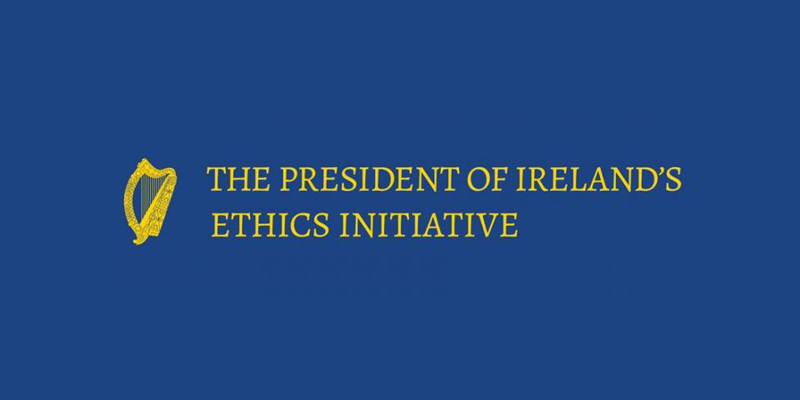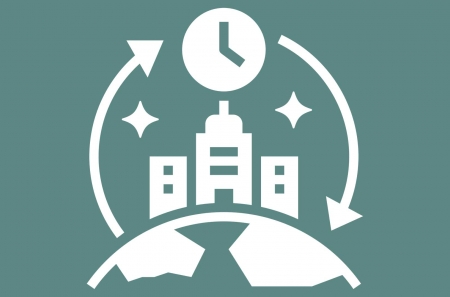
Professor Billy O’Connor: Building Ethical Brains
07 April 2015Professor Billy O’Connor is Foundation Professor and Head of Teaching and Research in Physiology at the University of Limerick Graduate Entry Medical School since 2007. Professor O’Connor is a founding member of Neuroscience Ireland and a fellow of the Royal Academy of Medicine in Ireland. He has a strong commitment to scientific outreach and communication. This is best illustrated through his popular website Inside the brain which reports on the latest from the world of brain research.
Neuroethics
I will begin by stating my belief that ethical codes have arisen by evolution through the interplay of brain and culture – a view that is sometimes termed “empiricism”.
The challenge of living ethically necessitates careful reflection about our scientific understanding of the human brain. The study of perception, learning, memory and recall is converging to unite ethical and social thought with neuroscience – the scientific study of the brain – and produce an emerging field of neuroethics.
Our Human Legacy
In looking at the way the brain is wired, neuroscience has removed some of the mystery of our feelings, particularly the compulsive ones. The physiology of our brains is a hangover from ancient times when physical survival was everything, for acting before thinking. We are still walking around in the 21st century with the brains of ancient cave dwellers. Indeed, for all our disputes, follies and fractious tribal disagreements, what we are is what got us here, and we may indeed still destroy ourselves. This raises the question: is it possible that a re-engineered human brain would do any better?
Neuroplasticity
Neuroscience reveals that nerve circuits are called upon in the brain for various activities including impulse control – arguably the basic attribute of the moral person – thereby enabling us to plan, initiate, organise and, most importantly, inhibit certain behaviours. Furthermore, neuroplasticity shows how the learning and practice of these behaviours can cause discrete brain circuits to grow or change by adding a tiny fraction of the brain’s neural circuitry and eliminating old ones. Brain imaging (neuroimaging) technologies are facilitating an unprecedented and rapidly developing ability to correlate nerve activity in these circuits with psychological states and traits, including attitudes towards particular ethnic groups and predilection for violent crime. These finding are the basis of the remedial use of cyber therapy, whereby inducing the illusory ownership of a body of a different race, age or gender (avatar embodiment) can alter the psychological/cognitive functions produced by these brain circuits and thereby change ethical behaviour.
A Careful Moral Balancing
These technologies generate genuinely new issues about free will and responsibility – such as when and how are we to ensure the privacy of our own minds (cognitive liberty/privacy), drug-induced mental (cognitive) enhancement, thought-based control of computers and robots (roboethics), and changes in personal identity (memories or moods) following neurosurgery (ethics of psychosurgery).
As the tragic history of frontal lobotomy reminds us, permanent alteration of the brain cannot be taken lightly and these new technologies may require a reconsideration of the ways in which we think about classical problems. Nevertheless, while our rapidly expanding scientific understanding of the brain generates these new ethical questions, sometimes in sharp relief, it also helps to humanise ethics and provides us with better therapies, for instance by enabling people to improve their memory and attention using drugs, and in helping us to communicate with comatose patients in a way that was not possible before.
The Darwinian basis for group selection argues that in the urges of the individual lies sin; in those of the group lies virtue – a dynamic relation between cooperation and defection. Yet we need both to survive, and evolution has endowed us with an intelligence high enough to judge and manipulate the tension generated by that dynamic relation. Most agree that this is the primary origin of our ethical code. In the end, the challenge of living ethically ceases to be technological, defaulting instead to the nature of humans and the quest for self-control, and emphasising the worth and dignity of hard work. Perhaps the question should be not how can humans build robots with a ‘moral compass’, but rather how can we build better ethical brains to ensure both self-preservation and the preservation of our species?
A Call To Action
Most agree that without addressing the highly complex interactions between the biological, social, cultural and environmental factors that shape our ethical code, any attempt to live ethically will be much the poorer. Towards this aim, this opinion paper advocates the development of new metaphors and ways of representing the responsible application of neuroscience in the teaching/learning of ethics in the classroom, and the establishment of new guidelines in mental healthcare, the criminal justice system, and social policy more generally.
About This Series
This opinion series explores what ethics currently means to Irish researchers across a variety of disciplines and was led by the RIA Committee for Ethical, Political, Legal and Philosophical Studies and was a contribution to President Higgins’ Ethics Initiative in 2014/15.
The views and opinions expressed by authors are their own and do not reflect the position of the Academy, but are simply an illustration of the various opinions reflective of the diverse Academy Committee membership.
Ethics Initiative
The President of Ireland’s Ethics Initiative is the second in a series of public seminars and reflections that President Higgins is holding during his term of office. This series aims to explore, throughout all aspects of society, the topic of ethics and the challenge and invitation of living ethically.


